Pectra upgrade focuses on staking, data blobs, and account abstraction.
Author: Binance Research
Compiled by: Shenchao TechFlow
The Pectra upgrade has now been launched on the Ethereum mainnet.
Dive into the core improvements of this upgrade, its significance for Ethereum's development roadmap, and our views on its potential impact on $ETH value accumulation.
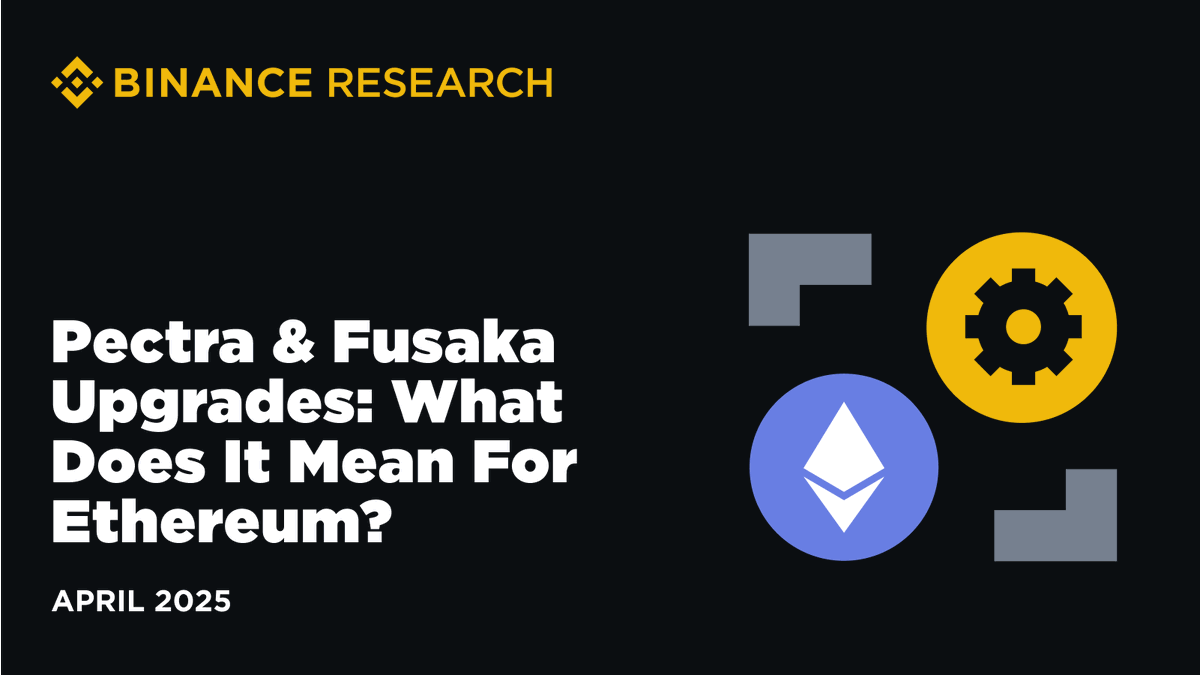
1/ What is Pectra?
The Pectra upgrade focuses on staking, data blobs, and account abstraction, primarily involving the following important EIPs (Ethereum Improvement Proposals):
EIP-7251: Increases the maximum effective balance (MaxEB) from 32 ETH to 2,048 ETH
EIP-7691: Increases data blob capacity from 3/6 to 6/9
EIP-7702: Upgrades externally owned accounts (EOA) to smart contract wallets
2/ EIP-7251 - Increase the Maximum Effective Balance (MaxEB) for Staking
The number of validators has now exceeded 1 million, putting significant pressure on the Ethereum Layer 1 (L1) network. By raising the maximum effective balance cap to 2,048 ETH, large staking service providers can consolidate their validator nodes, whereas previously the staking limit for each node was 32 ETH.
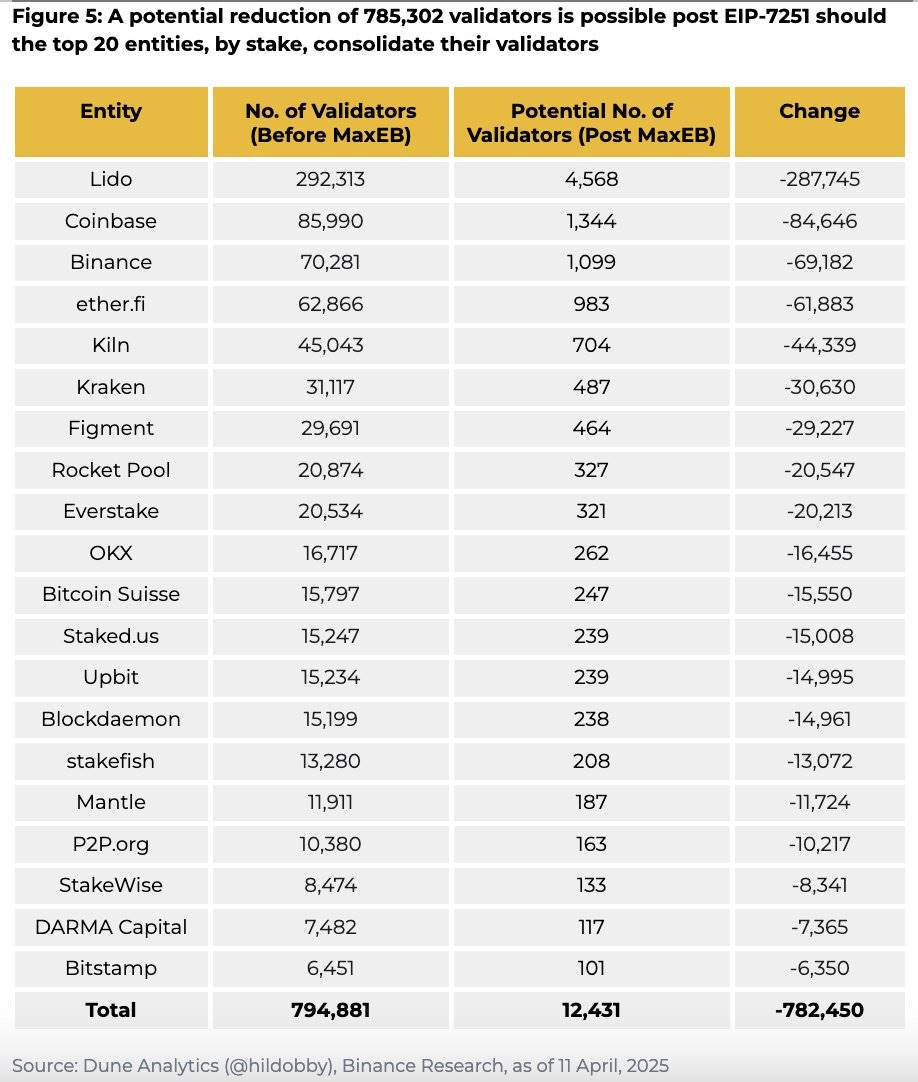
3/ EIP-7691 – Increase Target and Maximum Data Blob Capacity
Since the Dencun upgrade, the average number of data blobs has reached the target value, indicating that during network congestion, Layer 2 (L2) networks are reluctant to pay higher fees for data availability (DA). Increasing data blob capacity should allow more data to be uploaded to L1 while keeping costs low.
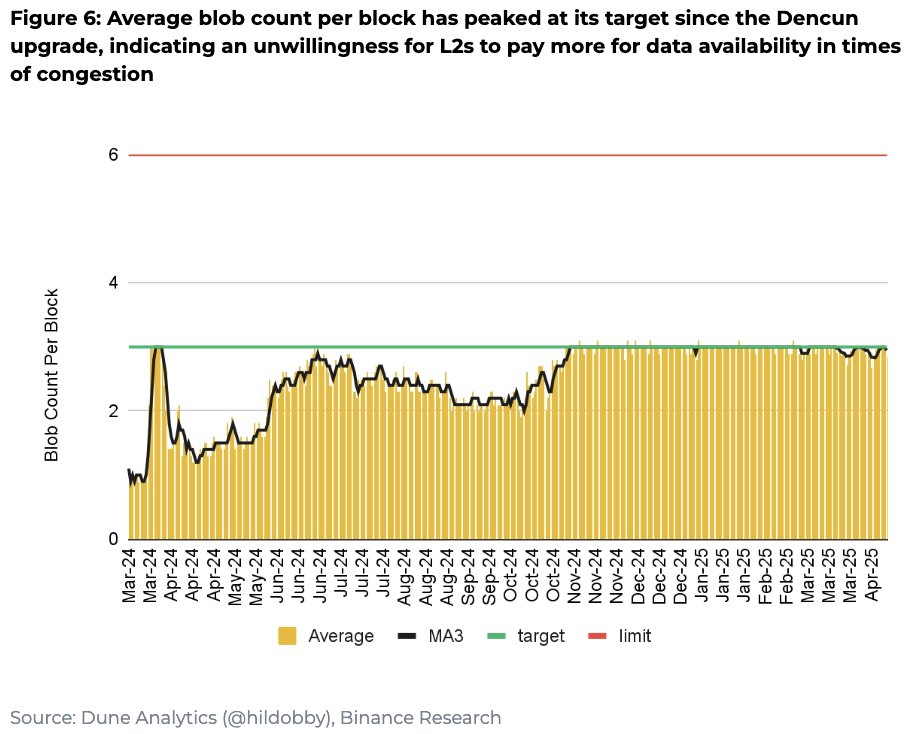
4/ EIP-7702 – Transform EOA into Smart Contract Wallets
EIP-7702 allows externally owned accounts (EOA) to temporarily set smart contract code that can only be executed during transactions, thereby supporting features like bundled transactions, gas fee sponsorship, and social recovery, bringing more flexibility.
5/ What’s Next for Ethereum?
Following the Pectra upgrade, the Fusaka upgrade is expected to be launched by the end of 2025. This upgrade will further advance Ethereum's Layer 2 scaling roadmap by increasing data blob capacity and potentially introducing upgrades to the EVM (Ethereum Virtual Machine).
6/ Fusaka Upgrade Plans
PeerDAS: Introduced in EIP-7594, PeerDAS will be an important step towards achieving complete data availability sampling.
Ethereum Object Format: Aims to further enhance developer experience and user security.
7/ The Future of Ethereum
Although Ethereum is committed to its Layer 2 scaling roadmap, questions remain about its long-term competitiveness as a data availability layer and how to achieve sustainable value accumulation.
8/ Ethereum as a Data Availability Layer
Even with the implementation of complete Danksharding, Ethereum will still lag behind peers in raw data throughput. However, as the most secure network with over 1 million validators, Ethereum's security is crucial for data correctness verification.
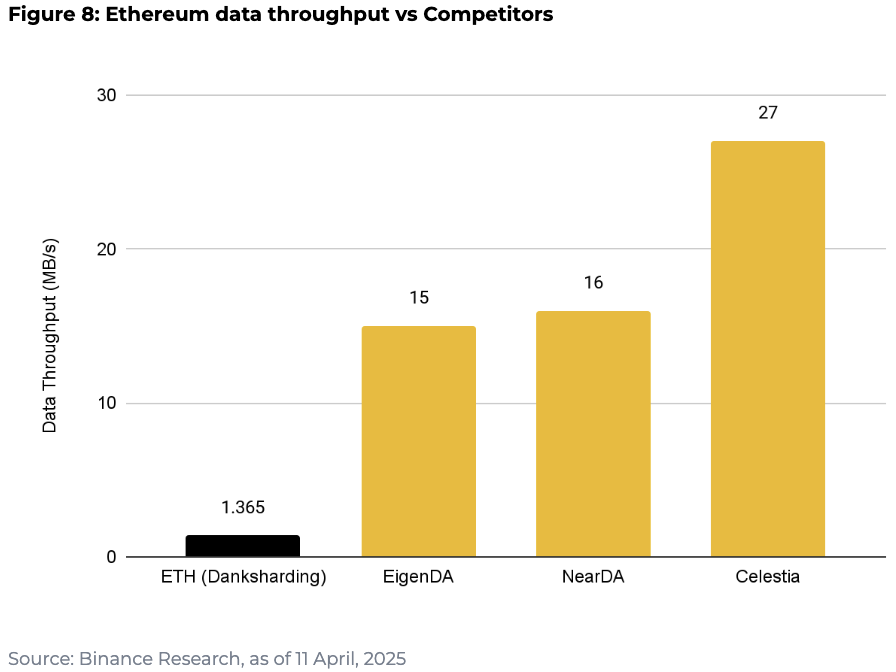
9/ $ETH Value Controversy
Proposals to reprice the data blob market may prompt Layer 2 networks (L2) to shift towards cheaper alternatives, while expecting L2 to support ETH through partial fees is overly subjective. Rollups based on Ethereum provide the most support for value accumulation, but currently, they are not a priority in the roadmap.
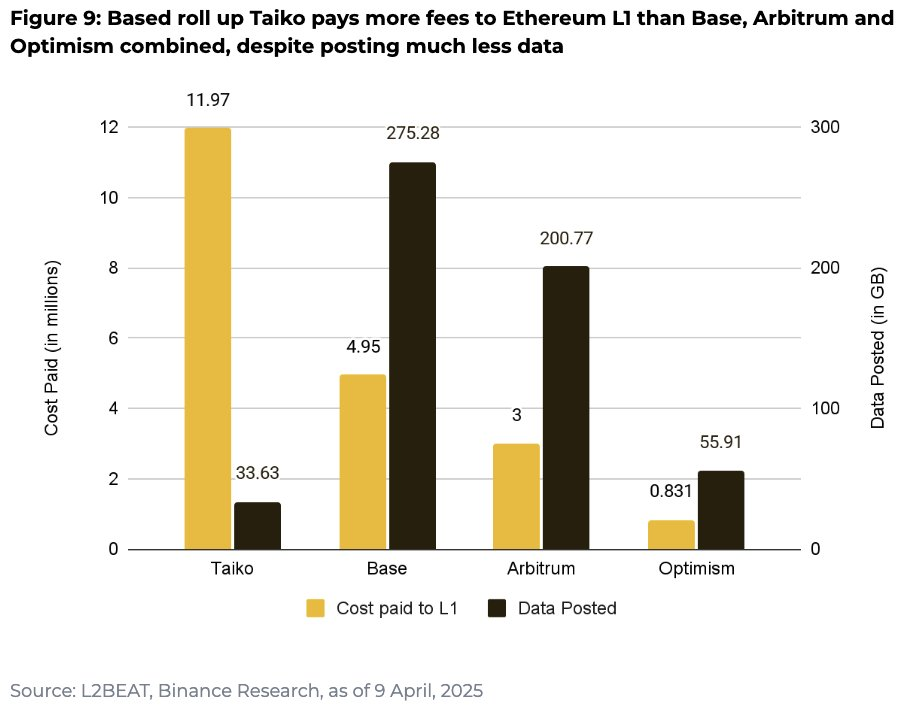
免责声明:本文章仅代表作者个人观点,不代表本平台的立场和观点。本文章仅供信息分享,不构成对任何人的任何投资建议。用户与作者之间的任何争议,与本平台无关。如网页中刊载的文章或图片涉及侵权,请提供相关的权利证明和身份证明发送邮件到support@aicoin.com,本平台相关工作人员将会进行核查。




